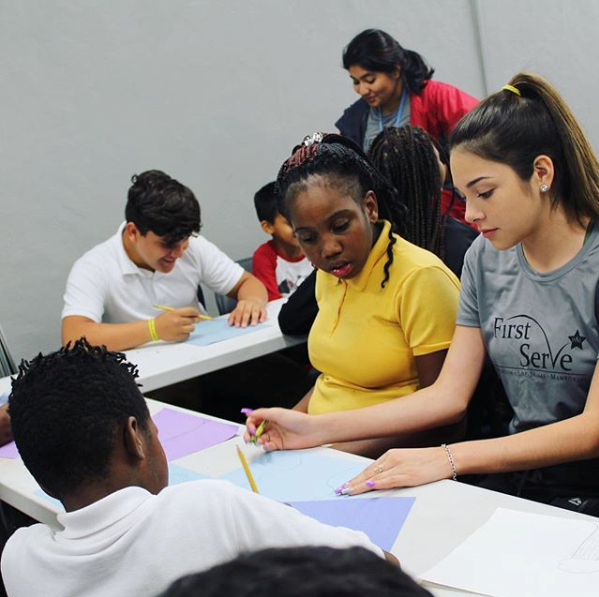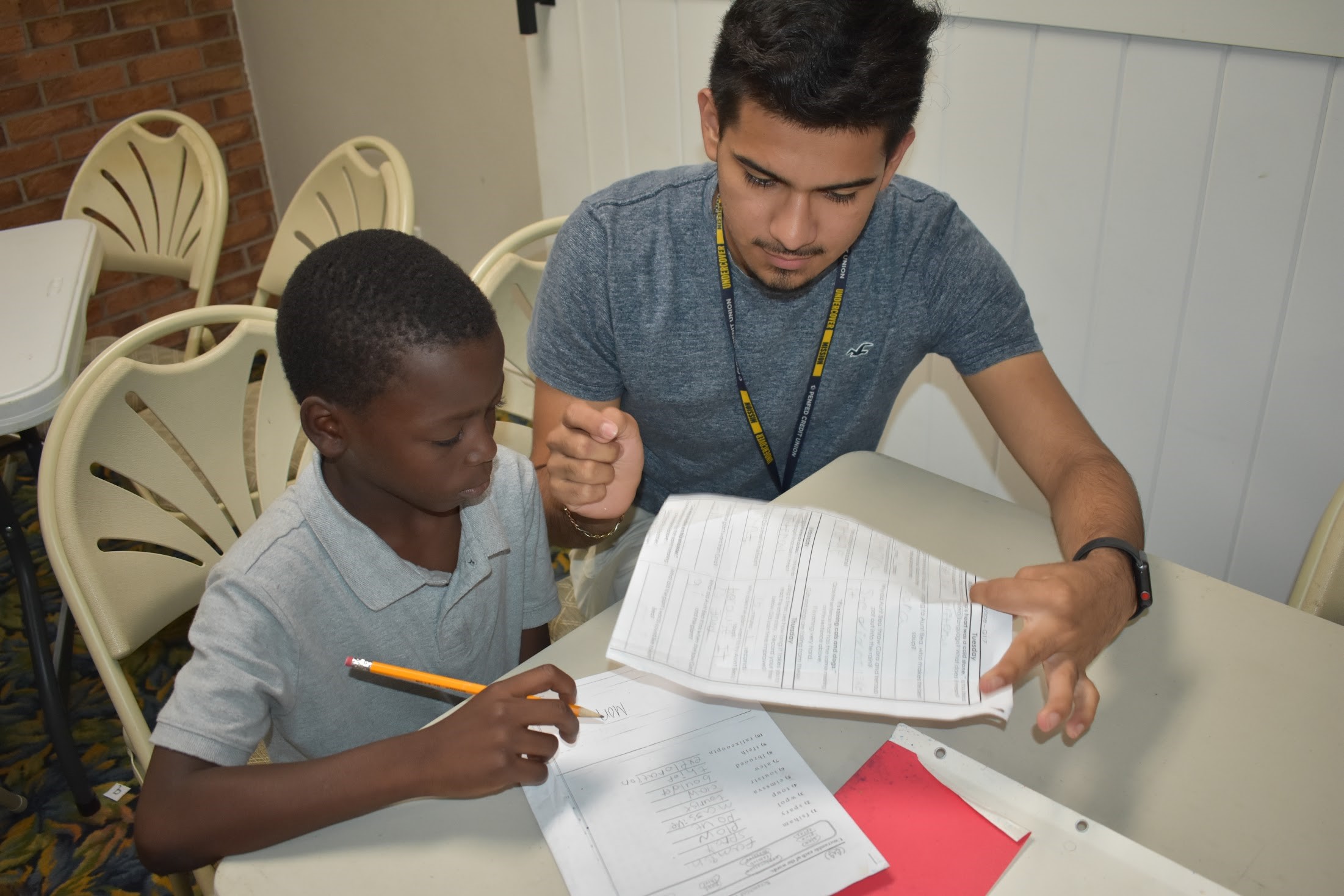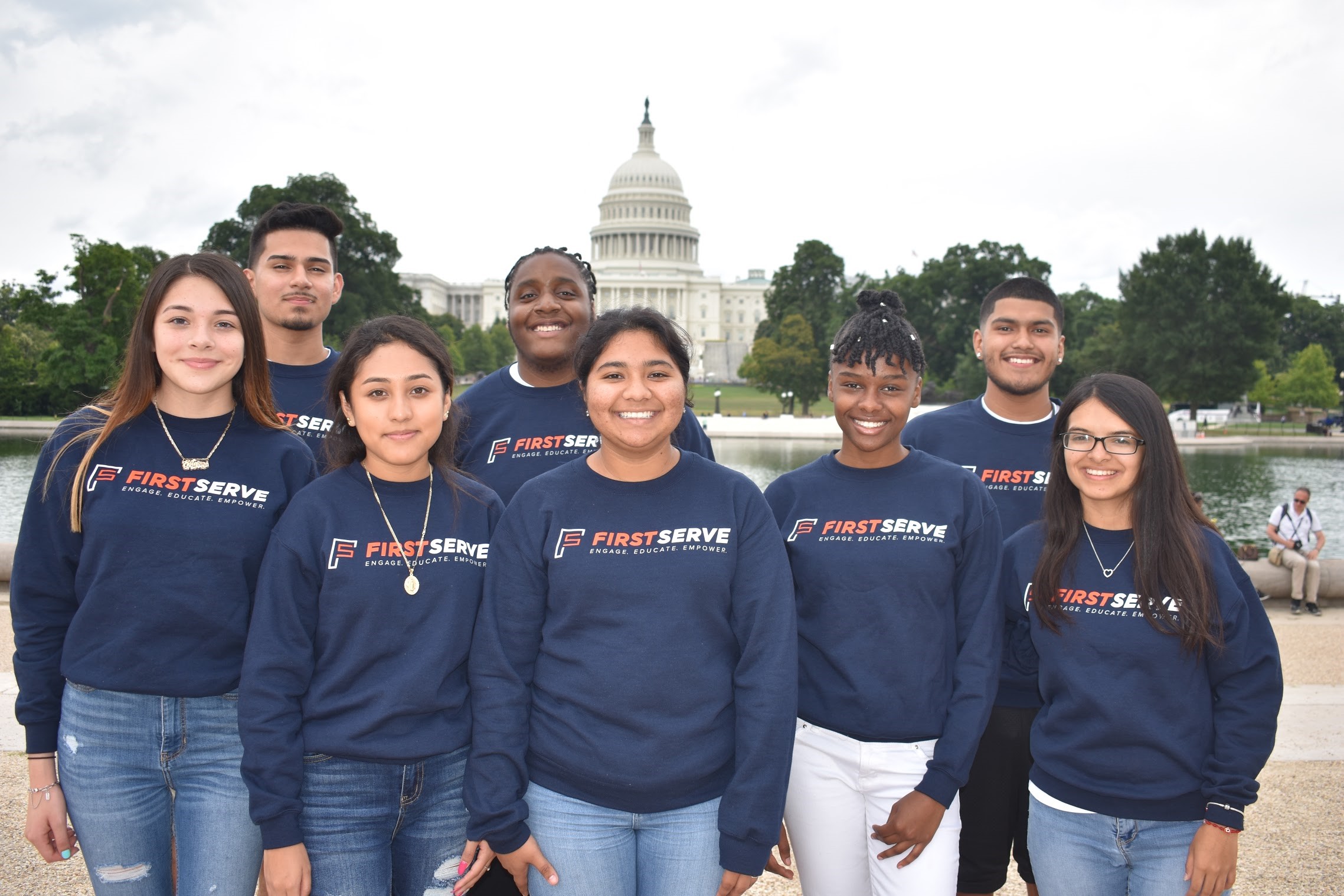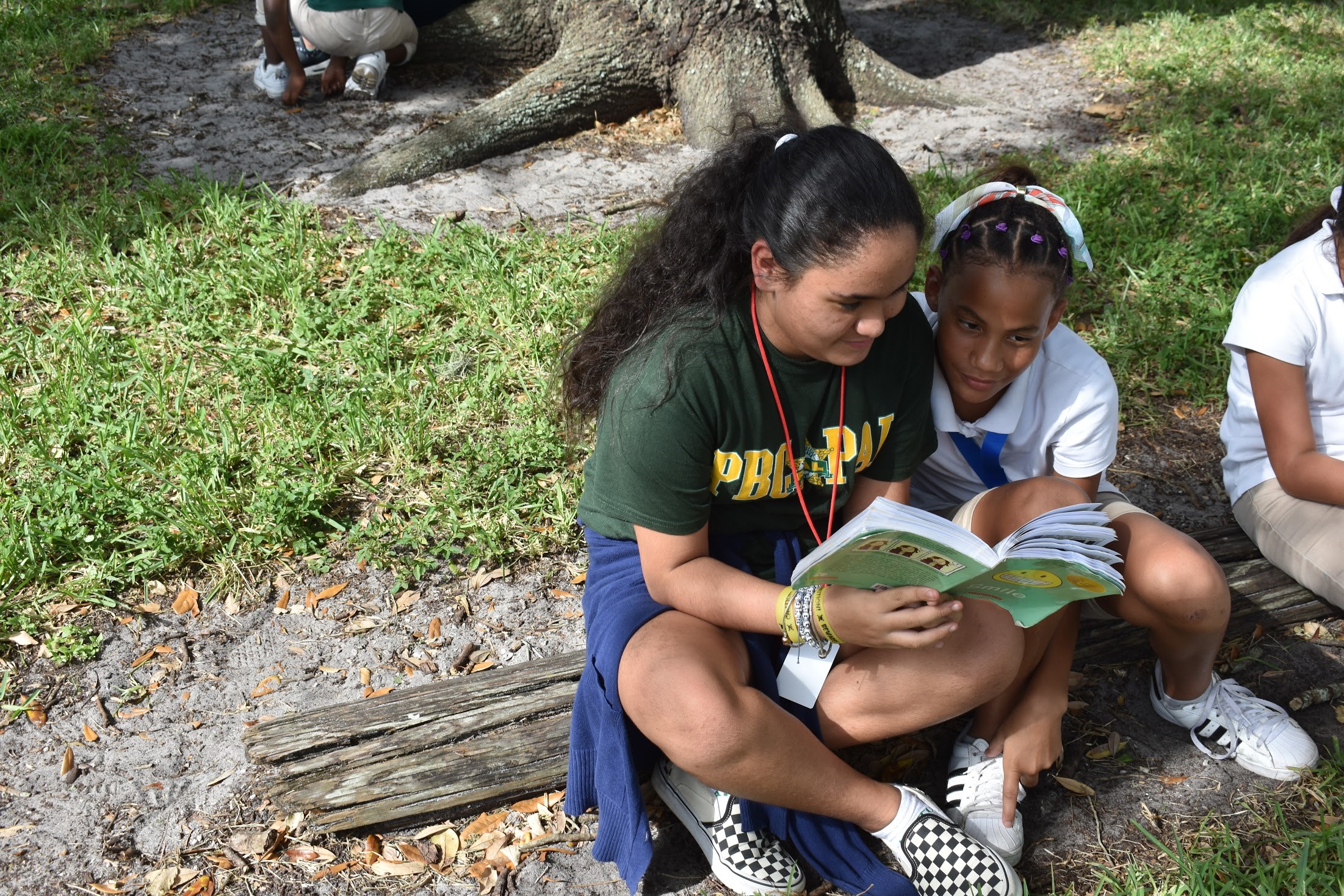
First Serve Pal: Giving Teens a Purpose While Serving Younger Students, Too
First Serve PAL has a neat idea that’s really working: enlist high school students to mentor younger students and pay them a salary to do it, too! It’s a formula that’s working, so we figured that when First Serve applied to us for a small grant, we should give them one. We’re always down for a creative mentoring idea that’s making a difference for children.
Also, we wanted to know how this all works, kids mentoring kids, so we had a chat with First Serve Program Director Jenny Velasquez who gave us nice, thoughtful answers to all our many questions. We thought you’d like to read what she had to say, too. So settle in with the beverage of your choice and prepare to learn all about this wonderful organization—we think you’ll enjoy the read:
Kars4Kids: Can you tell us a bit about the demographic you serve?
Jenny Velasquez: We have programs that run across Palm Beach and Martin County; especially in underserved communities. These are typically low income and high crime areas.
Kars4Kids: You have around 50 mentors, giving 500 children 924 hours each, every year. How does this work on a daily basis, practically speaking? Do mentors meet with mentees every day? Where do they meet?
Jenny Velasquez: We have around 60 plus youth mentors working with younger students. We hire outstanding high school students to come every day for about 3 hours after school to teach elementary and middle school students from within their same community. During these three hours mentors help the mentees with homework, arts and crafts, life skills, sports instruction, and much more.

Kars4Kids: First Serve PAL utilizes high school students as mentors. Why high school students?
Jenny Velasquez: We chose high school students because it is a way to keep these teenagers out of the streets where they might get involved in crime or with drugs. We also do our best to engage them into pursuing a career and going to either college or technical school after they graduate high school.
Kars4Kids: First Serve PAL mentors actually receive a salary for their work, and that salary is more than minimum wage. Why?
Jenny Velasquez: As I mentioned before, employing these high school students gives them a safe place to work and be after school; we want them to work doing something meaningful for their own communities and a place where they will also be getting mentored and engaged to pursue a career after they graduate high school. We feel that if we weren’t employing these high school students that most of them will be either not working or working for fast food restaurants or places where they aren’t really being mentored.

Kars4Kids: Can you tell us a bit about The Enneagram?
Jenny Velasquez: The Enneagram is an effective and dynamic typology system and model of the human psyche that speaks to the strengths and challenges of students corresponding to their particular focus of attention. We find the Enneagram to be a particularly helpful tool as, unlike most personality assessments, it focuses not on the behavior of the individual but rather on their motivation. We like to say, “The Enneagram gives us a language to speak about our differences without judgement.” Through the use of this tool, we are able to promote mindfulness and encourage self-awareness.
Kars4Kids: You offer vocational training to your mentors. What sort of job training is available?
Jenny Velasquez: Our mentors are provided training most predominantly in the field of education and childcare. In addition to our mentors being paid hourly to work with the mentees, many of them are also enrolled in DCF certification courses which are provided, paid for, and monitored by First Serve PAL site supervisors. They are also offered free college and postsecondary career counseling which allows them to explore other professional avenues. Both our mentors and mentees are also afforded the opportunity to learn from attorneys, law enforcement officers, educators, business owners, and various other professionals.

Kars4Kids: What is the duration of a typical First Serve PAL mentor/mentee relationship?
Jenny Velasquez: Most mentors come into the program in their 2nd or 3rd year in high school and remain with the program in some capacity until a year or two after they graduate high school. During their time at First Serve PAL, they work closely with the same groups of mentors, usually for about 3-5 days a week, averaging in at about 2-4 hours a day. This allows for a genuine and positive connection to form between the mentors and mentees. Those relationships usually last regularly for at least a couple years after either the mentors or the mentees have left the program in an official/professional capacity.
Kars4Kids: How has coronavirus impacted the work of First Serve PAL?
Jenny Velasquez: In order to comply with CDC guidelines, on site/in person interactions have been either greatly limited or suspended since March. However, the need for guidance and mentorship has only grown. As such, wherever possible, First Serve PAL has moved ongoing operations to a digital format. In addition to placing a focus on writing curriculum for the new year and planning and hosting events, First Serve PAL holds multiple Zoom sessions every week, with a high priority placed on meeting with our mentors and mentees who have access to the internet.
Each week, through Zoom, students are provided with personal and professional development sessions, continued access to college, career, and postsecondary counseling with trained professionals, as well as afforded opportunities to partake in large online events in which they are able to connect with other students in a safe and monitored space, as well as opportunities to meet and partake in Q and A’s with professionals across various fields.

Kars4Kids: First Serve PAL has been around since 1993. Do you have mentees who return to your program as mentors?
Jenny Velasquez: Not only do we have mentors who return to our program as mentors, but we encourage it. With opportunities presented through the likes of specific site locations and the Pay it Forward scholarship, we encourage our graduating students to find ways to continue to invest their time and attention to the younger mentees in the program. We are grateful for how often this happens.
Kars4Kids: What’s next for First Serve PAL?
Jenny Velasquez: As we continue to adjust our course due to the updates surrounding the coronavirus, we have readily set our attention on building a more effective curriculum and an even more extensive program for 2021. We are in the works of forming a greater partnership with the Department of Justice, in which we hope to find more avenues for lasting change in individuals and communities alike.